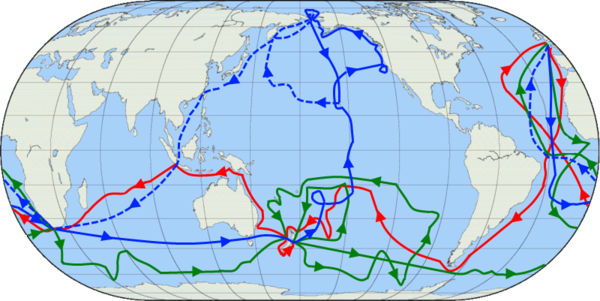“Punting the Pundits” is an Open Thread. It is a selection of editorials and opinions from around the news medium and the internet blogs. The intent is to provide a forum for your reactions and opinions, not just to the opinions presented, but to what ever you find important.
Thanks to ek hornbeck, click on the link and you can access all the past “Punting the Pundits”.
Follow us on Twitter @StarsHollowGzt
New York Times Editorial Board: Killings of Journalists Bring Gun Violence to Dark New Level
It is an increasingly horrific fact of life and death in the United States that easily available guns offer troubled Americans the power to act out their grievances in public. This trend, dramatized in recent years by macabre shootings in schools, churches, movie theaters and workplaces, was taken to a dark new level on Wednesday in southwestern Virginia by a disturbed former reporter who chose not only to murder two journalists as they reported live for a television station that had fired him, but also to record and broadcast the crime on social media. [..]
Many politicians will focus on the gunman’s troubled personality and try to cast this shooting as a summons for better mental health care, certainly not gun control. Yet that ignores a grim reality: the estimated 300 million guns in America owned by a third of the population, far more per capita than any other modern nation. Guns are ubiquitous and easy to acquire, as statehouse politicians, particularly Republicans, genuflect to the gun lobby to weaken, not tighten, gun safety.
We all know no change is likely, for all the social media grotesquerie. The woeful truth underlying this latest shooting is more mundane than alarming. There are too many guns, and too little national will to do anything about them.
Trevor Timm: Many police departments spy on you without oversight. This must end
Local police around the country are increasingly using high-tech mass surveillance gear that can vacuum up private information on entire neighborhoods of innocent citizens – all to capture minor alleged criminals. Even worse, many cops are trying to put themselves outside the reach of the law by purposefully hiding their spying from courts to avoid any scrutiny from judges.
Two important news reports from the last week have shed light on the disturbing practices, and new technology that’s never been previously reported. The first investigation, done by USA Today’s Brad Heath, found: “In one case after another … police in Baltimore and other cities used the phone tracker, commonly known as a stingray, to locate the perpetrators of routine street crimes and frequently concealed that fact from the suspects, their lawyers and even judges.”
We are seeing the usual hysteria over the sharp drop in the markets in Asia, Europe, and perhaps the US. (Wall Street seems to be rallying as I write.) There are a few items worth noting as we enjoy the panic.
First and most importantly, the stock market is not the economy. The stock market has fluctuations all the time that have nothing to do with the real economy. The most famous was the 1987 crash, which did not correspond to any real-world bad event that anyone could identify.
Even over longer periods, there is no direct correlation between the stock market and GDP. In the decade of the 1970s, the stock market lost more than 40 percent of its value in real terms; in the decade of the 1980s it more than doubled. GDP growth averaged 3.3 percent from 1980 to 1990, compared to 3.2 percent from 1970 to 1980.
Amanda Marcotte: Why Fox News’ Defense Of Megyn Kelly Is Going To Backfire
Donald Trump has reignited his sexist harassment campaign against Megyn Kelly, and the folks at Fox News are, in seemingly coordinated fashion, striking back. Fellow Fox News hosts and pundits are asking Trump to cool it, and even Roger Ailes has released a statement calling Trump’s abuse “unacceptable” and “disturbing.” It’s almost touching, watching all these conservative media people who usually profit at peddling sexism choose, this time at least, to join together in an effort to stop this one particular instance of it.
It’s also going to backfire.
Conservative media and Fox News in particular have spent years – decades, if you count talk radio – training their audiences to believe that exhortations against sexism and racism are nothing but the “political correctness” police trying to kill your good time. Indeed, one reason that Trump was able to get so much attention for his presidential run in the first place is that Fox has spent years building him up, knowing that their audience enjoys vicariously needling imagined liberals and feminists with his loud-mouthed insult comic act.
Seamus Milne: China can ride out this crisis. But we’re on course for another crash
It may not yet be the moment to get in supplies of tinned food. That was what Gordon Brown’s former adviser during the 2008 crash, Damian McBride, suggested on Monday as stock markets crashed from Shanghai to New York and $1tn was wiped off the value of shares in one day. But seven years after the collapse of Lehman Brothers brought down the global financial system and plunged half the world into a slump, it’s scarcely alarmist to see the financial panic as the harbinger of a new crisis in a still crippled world economy.
The market gyrations that followed “Black Monday” this week and the 40% drop in the value of Chinese stocks since June have only underlined the fragility of what is supposed to be an international recovery. For all the finger-wagging hubris of western commentators over the fact that the latest mayhem has erupted in China, this is a global firestorm. And after three decades of deregulation punctuated by financial crises and a systemic meltdown, there is every reason to fear more fallout from casino capitalism.
Scott Lemieux: Gun control is political. So is refusing to address the politics of gun violence
After the 24-year-old television reporter Alison Parker and her 27-year-old cameraman Adam Ward were killed while on camera from a lake outside of Roanoke, Virginia on Wednesday morning, the frontrunner for the Democratic nomination, Hillary Clinton, somewhat predictably tweeted that “[w]e must act to stop gun violence, and we cannot wait any longer” and Virginia governor Terry McAuliffe called for new gun control measures in the form of background checks .
The conservative response to Democrats’ anodyne reactions is even more predictable: it’s wrong, they say, to “politicize” individual acts of firearm violence. But gun violence in the United States has everything to do with politics – and we should be talking more, not less, about the impact of America’s failed gun policies on victims and their families and communities.







 After centuries of dormancy, Mount Vesuvius erupts in southern Italy, devastating the prosperous Roman cities of Pompeii and Herculaneum and killing thousands. The cities, buried under a thick layer of volcanic material and mud, were never rebuilt and largely forgotten in the course of history. In the 18th century, Pompeii and Herculaneum were rediscovered and excavated, providing an unprecedented archaeological record of the everyday life of an ancient civilization, startlingly preserved in sudden death.
After centuries of dormancy, Mount Vesuvius erupts in southern Italy, devastating the prosperous Roman cities of Pompeii and Herculaneum and killing thousands. The cities, buried under a thick layer of volcanic material and mud, were never rebuilt and largely forgotten in the course of history. In the 18th century, Pompeii and Herculaneum were rediscovered and excavated, providing an unprecedented archaeological record of the everyday life of an ancient civilization, startlingly preserved in sudden death. Those that did not flee the city of Pompeii in August of 79 AD were doomed. Buried for 1700 years under 30 feet of mud and ash and reduced by the centuries to skeletons, they remained entombed until excavations in the early 1800s.
Those that did not flee the city of Pompeii in August of 79 AD were doomed. Buried for 1700 years under 30 feet of mud and ash and reduced by the centuries to skeletons, they remained entombed until excavations in the early 1800s.
Recent Comments